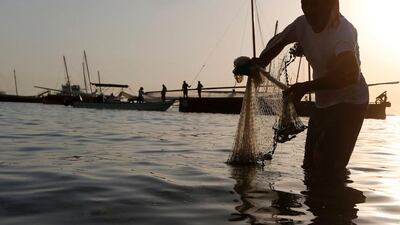We know all too well that industrial human activity is putting the marine world under unprecedented threat. The reports are there aplenty.
According to the United Nation’s Food and Agriculture Organisation 2016 report on world fisheries and aquaculture, almost all global fish stocks are overexploited in some form.
In fact, almost two-thirds of fish stocks are fully exploited and more than a quarter overexploited.
To add insult to injury, regional climate change models predict an additional decline of 26 per cent in the fish population by 2090 and increased acidification of the oceans to affect the reproductive processes and survival of juvenile fish.
But what we still fail to fathom is that some ecosystems are under so much pressure that even basic services upon which we rely may soon be affected.
To give all these issues a greater focus, United Nations member states convened last week to find ways to conserve and sustainably use the oceans, seas and marine resources.
In short, damage control.
But still, more global action is needed and fast. Coastal zones, where industrial activity is greatest, are quickly wearing the brunt of the damage, with the loss and degradation of key habitats. Eventually, though, all oceans will be affected since marine debris and micro plastic are transported great distances. That’s not to mention the effect greenhouse gases continue to have on these fragile ocean habitats.
The conference, which coincided with World Oceans Day, pledges to be a game changer that will reverse the damage.
This pledge couldn’t have come at a more critical time.
The ocean, for one thing, has always been paramount for the forefathers of the UAE.
Historically, fishing and harvesting marine resources were integral to the survival of communities since the sea is the gateway between the UAE, the Arabian Gulf and the world.
Economic activity across the country is fundamentally connected to the maritime domain.
This is not lost on the country. Authorities in Abu Dhabi are taking steps to conserve and ensure sustainable use of maritime resources.
The Environment Agency Abu Dhabi has been working closely with the Abu Dhabi Urban Planning Council and other stakeholders to produce the Plan Maritime 2030, a comprehensive coastal and marine spatial plan for Abu Dhabi containing more than 320 management measures, prioritised across a 15-year time frame.
Ten areas are addressed in the plan, which includes a climate change adoption framework, water quality, recreation and tourism. The link between a vibrant marine environment and economic growth couldn’t be clearer.
A study conducted in 2015 in Abu Dhabi found that good water and beach quality earn hotels more than $140 million a year (based on a survey of 15 hotels) and are worth almost $700 million in economic activity among beach users in other domains.
Having good monitoring data and science are critical at protecting marine life.
Thankfully the EAD has a comprehensive monitoring and research programme, which, for some species, has been running for 15 years and has experienced resounding success.
This data has been used in Abu Dhabi to designate six marine protected areas, which make up almost 15 per cent of the country’s marine terrain.
These areas contain habitats that enhance the conservation of dugongs and their seagrass ecosystems, green turtles and nesting beaches for critically endangered Hawksbill turtles, whose populations in Abu Dhabi waters are stable thanks to being monitored yearly since the start of the century.
Bu Tinah shoal has been identified as one of the 10 most important marine turtle areas under the Network of Sites of Importance for Marine Turtles in the Indian Ocean for the South-east Asia region.
Similarly, the city’s dugong population, which is the second largest global population outside Australia, has been stable for the past 15 years.
A 2015 dolphin assessment, meanwhile, found that the UAE has the largest population of humpback dolphins globally.
The country, which has fish exploitation figures similar to the global average, plans on implementing a fisheries change management programme to ensure the country’s fisheries legacy remains intact.
Countries need to embark on such initiatives. Few seem to recall that healthy oceans, which cover about 70 per cent of the Earth’s surface, are vital for life.
More than 50 per cent of the oxygen we breathe is provided by phytoplankton. That is reason enough to quickly do damage control before it’s too late.
Razan Khalifa Al Mubarak is secretary general of Environment Agency Abu Dhabi

